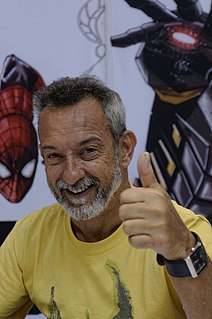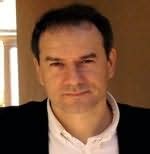A Quote by Amos Oz
Actually, who hasn't been through the ghastly experience of sitting in front of a blank page, with its toothless mouth grinning at you: Go ahead, let's see you lay a finger on me? A blank page is actually a whitewashed wall with no door and no window. Beginning to tell a story is like making a pass at a total stranger in a restaurant.
Related Quotes
Yes, the fear of its blankness. At the same time, I kind of loved it. Mallarmé was trying to make the page a blank page. But if you're going to make the page a blank page, it's not just the absence of something, it has to become something else. It has to be material, it has to be this thing. I wanted to turn a page into a thing.
Writing the first draft of a new story is incredibly difficult for me. I will happily do revisions, because once I can see the words on the page, I can go about ripping them up and moving scenes around. A blank page, though? Terrifying. I'm always angsty when I'm working my way through a first draft.
I use a computer, but before I begin each new book I keep a notebook. I write down everything that comes to mind during that period before I actually begin. It might take months or weeks. That notebook is my security blanket so that I never have to face a blank screen (or blank page). But I print out often and my best ideas usually come with a pencil in my hand.







































